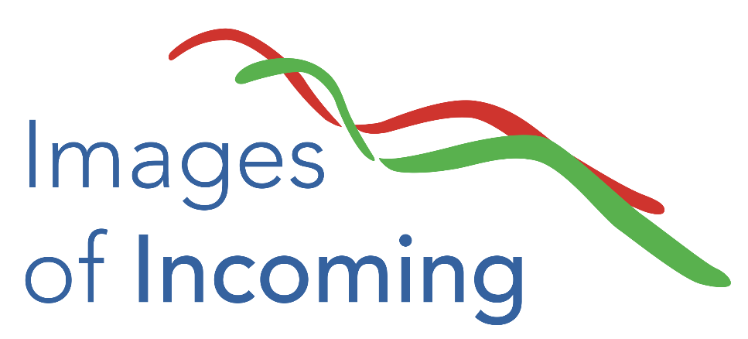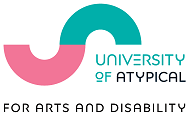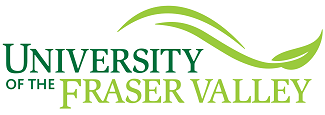Background
The project, ‘Images of Incoming: A Photovoice project exploring belonging and exclusion with newcomer and migrant women in rural areas’ engaged approx. 70 women from Northern Ireland and Canada. The Northern Ireland-Canadian project emerged from an initial partnership between Queen’s University Belfast’s Open Learning (Adult Education) Programme and the University of the Fraser Valley, British Columbia’s Adult Education Department. The University of Atypical, Northern Ireland’s arts and disability network, later joined the partnership to curate an exhibition of photographs from participants, facilitate the creation of an accessible website and make a documentary film – recognizing the postdigitality of accessible dissemination and impact.
In proposing this project, we embedded holistic outcomes for participants such as: improved digital literacy, English language and literacy skills, increased self-confidence, stronger social relationships, intercultural awareness, self-awareness, self-efficacy, conflict-management skills, community organising and increased knowledge of community-based supports in each respective geographic region.
The overarching research question was, how can we create a postdigital arts-based co-research model which can offer migrant women a voice to articulate their resistance to negative stereotyping and exclusion and to reveal what belonging means? Subquestions included:
- Can communities in Canada and Northern Ireland learn from one another about practices and policies of inclusion and exclusion?
- How do newcomer communities define exclusion and belonging – to their own communities, to the new, host communities, or a new liminal identity?
- Can newcomer communities gain solidarity and learn new skills and gain new knowledge through a postdigital exchange between Northern Ireland and Canada?
- Can arts-based projects benefit newcomer participants in terms of learning new skills, gaining accreditation and developing wellbeing and improved mental health?
- What do newcomer communities need in terms of overcoming exclusion and can a small scale innovative co-research partnership focused on SDGs offer lessons for policy and funding in both countries?
- Can participants build further collaborative partnerships from this project?
Planning for the project began in the Spring of 2019 after informal discussions between Queen’s Open Learning team and the Adult Education team in University of the Fraser Valley. A detailed proposal was jointly drawn up and then funding applications were made in both universities. Both universities were very supportive, seeing the project as part of their vision as an engaged university and seeing how it met key SDG aims, including gender equality, quality education and working for the goals through partnership. Ethical approval was also sought and obtained. A part-time project coordinator was appointed in Belfast, Dr Federica Ferrieri.
It was agreed that the process in each country should follow the natural modus operandi of each partner. Thus, in Northern Ireland, the project was platformed as two consecutive courses within the Open Learning Programme and participants were able to obtain credit points (at the equivalent of first year University study). No prior qualifications are needed but participants will gain 10 credit points at university first year standard. The aim of this was that participants would be able to add to the skills they have which could benefit them in applying for educational courses or jobs.
The approach in Canada was more informal and involved two workshops (2.5 hour each) throughout the Lower Mainland of British Columbia or in an online environment. The different platforms allowed for flexibility and the needs of the participants. For example, childcare was provided to the participants, as well as transportation and food.
It was agreed that the two groups of participants – in Canada and Northern Ireland – would come together for 5 x 2 hour ‘exchange workshops’. This would create solidarity between the women and also further enhance the international element.
In each country, the project organisers spent some considerable time meeting with voluntary organisations and developing relationships so that migrant women would come forward. Both teams were experienced in delivering projects with a range of voluntary groups, but, especially in Northern Ireland, a substantial amount of additional research needed to be done, especially by the project coordinator, to identify relevant groups and approach them. There was also one-to-one work done with other people who were experts in this field or who were involved in informal networks. It is important to emphasise that, in both counties, the academic teams were both well aware of the importance of a sustained developmental process which recognized that some women had felt alienated and excluded and also that some women were lacking in confidence or others were not entirely sure for a while what the project was about. We were able to enlist a number of community facilitators from a range of voluntary groups in Northern Ireland working with migrants and they played an absolutely invaluable role in helping to explain the project and persuade the women to participate, in particular, Barbara Boyle, Asma Niazi (various Muslim groups), Ana Peters (BAWA, Belfast Asian Women's Academy), Ana Cucu (EWANI, European Women Association in NI), Sanjay Ghosh (ImageNation NI), Marta Kempny (Migrant Centre NI).
In fact, not all the initial connections with groups came to fruition, but, on the other hand, we created an important partnership with the First Steps Women’s Group in Dungannon – a rural town 40 miles southwest of Belfast with a large incomer population. This group had got in touch with the Open Learning team to find out if Queen’s might work with them to develop or accredit courses and when the Images of Incoming project was mentioned to their CEO, Michael McGoldrick, by the Open Learning Director (PI for this project), they were really keen to form a strand. The Dungannon group included both incomer women and local women which was a new angle we had not thought of and here the workshops were delivered face-to-face by the PI as this group was not so digitally confident.
This incidental partnership was followed sometime later by another – again, as a result of a contact from the PI to University of Atypical relating to arts and disability, the CEO, Damien Coyle. Damien offered to not only curate the exhibition formed from the ‘gallery of photos created by the participants, but also to develop a virtual tour, incorporating sign language, and to help us to raise the level of the project website in terms of ‘aesthetic high production values’ and accessibility and then to make a short documentary film about the project. Thus, while there were setbacks in terms of partnering with voluntary sector groups - unpredictable, disappointing and perhaps inevitable - there was also the serendipity, the good fortune of incidental partnerships which have added such richness to the original project conception.
In Northern Ireland, after a number of months we were able to arrange pre-project meetings and enrol well over 30 incomer women. In Canada, the process of engaging with participants was done through outreach to community organisations. Two of the researchers, Tanis Sawkins and Amea Wilbur, had worked extensively in the sector before entering the academy and were able to reach out to contacts. The research assistants were recruited based on their lived experiences, skills and interest in the project.
In Northern Ireland, the first series of workshops (5 x 10 hours) began on Tuesday 25th January 2022 and ran until Thursday 24th February. At the request of participants, we scheduled two online, digital workshop ‘slots’; one on Tuesday mornings and the other on Thursday evenings. This offered participants greater flexibility. The third group met face-to-face in Dungannon. There is no doubt that this is a considerable time commitment for workshop facilitators, but if the project is to respect the voluntary commitment of co-learners and co-researchers, then it must be built around their real lives. In Canada, at the first meeting with participants, the researchers explained what Photovoice and then explored the methodology in practice. The second workshop participants were asked to share one photo of belonging and photo of exclusion with the group. The UFV researchers took the participants through the process of analysing photos during both our first and second meetings The second series of workshops (running from Thursday 24th March to Thursday 12th May 2022) brought together participants from Northern Ireland and Canada. While the first series was designed to give all the women space and time to discuss their photos, creating a commentary and interacting with the other women in the group, the second series was more about creating international exchanges, comparing and contrasting migrant experiences and also, indirectly getting a sense of the contrasting policy and practice in each country. In the evaluation, participants offer their insights on the workshops.
Given the crucial importance of enacting a true co-research and co-learning ethos, we accepted that not all those who took an initial interest were going to complete the project. We do not regard this as a failure because every woman was able to engage on her own terms without any pressure. Some women produced a set of images or gallery, but were not able to attend the workshops and so there were no commentaries. We have included all their photos, on the website. Other women could only attend the series offered in their own country and were not able to also engage in the international workshops.
There were also - perhaps inevitably - problems because of the digital/postdigital medium of delivery. Participants and facilitators discuss some of these in the evaluation, but it may be added that the decision to use disposable digital cameras, while protecting the anonymity of participants- a key concern for some of the women - in a way which mobile phone technology could not, offered some other challenges. The process of getting the disposable cameras out to every single woman and getting them back, was, at times, complex. Even with a useful video about using the cameras, provided by University of Atypical, not all the photos came out. In the printing and digitizing process, there were some technical problems. Nonetheless, all in all, the use of the digital cameras did secure anonymity (we asked participants not to photograph actual people) and offered a relatively easy digital mode.
The workshops concluded on 12th May 2022. The next phase, evaluating the project then began, in tandem, with organizing exhibitions, website and documentary.



